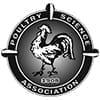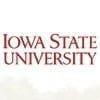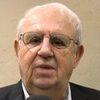Alfalfa may aid broiler performance, but inhibit immune response during coccidiosis - Interpretive summary
Published: March 21, 2024
By: https://poultryscience.org/
Dietary alfalfa may improve broiler growth, but fiber inclusion may be detrimental during coccidiosis challenge.
Alfalfa is a source of health-promoting bioactive compounds (phytochemicals) that may offer several benefits to the poultry industry by direct action or by influencing the microbial communities in chickens.
Iowa State University researchers recently examined the role late-cutting alfalfa — either as ground hay or a lipid-soluble extract — may have on growth performance, immune status and intestinal microbial populations in healthy broiler chickens or those facing an Eimeria challenge (coccidiosis).
In the article, “Dietary alfalfa hay or lipid-soluble alfalfa extract may improve broiler growth, but fiber presence may be detrimental during Eimeria vaccine challenge,” K. Fries-Craft, S. Schmitz-Esser and E.A. Bobeck noted that a significant limiting factor for the use of alfalfa hay in non-ruminant animal diets is the fiber content, which can have anti-nutritional properties. Also, due to the structure of their lower intestinal tracts, poultry are less able to use fiber compared to other monogastric species, such as swine.
While including alfalfa extracts in poultry diets may circumvent the negative effects of fiber, the specific beneficial phytochemical profiles of alfalfa have not yet been fully studied. Prior research has established a range of saponins, flavonoids and other compounds with beneficial effects in healthy broilers, but the effects of alfalfa and/or alfalfa extracts may differ in chickens dealing with coccidiosis.
The researchers’ objective was to evaluate the performance, immunity and cecal microbiota in broilers fed ground hay or lipid-soluble extract from late (fifth) cutting alfalfa prior to and during Eimeria challenge. They placed 432 Ross 708 broilers at hatch in 24 floor pens (18 birds per pen) and assigned each pen to one of three dietary treatments consisting of control, 5% ground hay or 0.25% lipid-soluble extract for a 42-day trial divided into 14-day starter, grower and finisher periods. At day 14, four birds per treatment were euthanized for sample collection, and half of the remaining chickens in each treatment were inoculated with an Eimeria challenge (10X Merck Coccivac®-B52 vaccine).
According to the researchers, before the Eimeria challenge, including ground hay or alfalfa extract in the chickens’ ration increased feed intake 6.9-8.0% and immune T cells 19.3-24.9% compared to control birds (P < 0.007). The alfalfa treatments did not significantly affect post-Eimeria performance, but Eimeria-challenged birds fed ground alfalfa showed the greatest numeric reduction in final bodyweight compared to their unchallenged counterparts (0.17 kg) versus control and extract-fed birds (0.02-0.04 kg).
Over the entire 42-day study, broilers fed ground alfalfa or alfalfa extract ate 5.5% and 5.8% more than control birds, respectively, regardless of Eimeria status (P = 0.05) without affecting overall bodyweight gain or feed conversion ratio.
Including either ground hay or alfalfa extract in the diet did not affect coccidiosis lesion scores at any intestinal region at 14 days post inoculation, and the presence of Eimeria oocysts generally decreased from 7 to 14 days post inoculation, the researchers reported.
Fries-Craft et al. suggested that feeding alfalfa extract may increase bodyweight in unchallenged chickens while facilitating bodyweight gain recovery through increased feed intake during coccidiosis.
In contrast to the researchers’ expectations, feeding alfalfa hay did not alter cecal microbial communities prior to Eimeria challenge, suggesting that the tested inclusion level was too low in fiber content to affect the gut microbiome.
The main difference between the two alfalfa treatments in this study was the presence of dietary fiber. Fiber and other phytochemicals in alfalfa may work synergistically to improve performance in unchallenged broilers. On the other hand, fiber inclusion may be detrimental during Eimeria challenge with greater performance reductions in challenged birds fed ground alfalfa.
In this study, underlying immune cell population changes and shifts in microbial communities provide insights into potential physiological changes, the researchers said. Two general trends were noted after Eimeria challenge: (1) birds fed alfalfa extract had immune responses mirrored responses in control birds, and (2) birds fed ground alfalfa generally did not show evidence of immune cell recruitment.
The researchers suggested that alfalfa extract could potentially be combined with other dietary Eimeria mitigation strategies to overcome the limitations of reduced feed intake during disease challenge.
What does this study mean for producers
- Feeding ground alfalfa to broiler chickens may help improve growth performance of healthy chickens, but the increased dietary fiber may negate those improvements in chickens facing disease challenges, such as coccidiosis.
- Alfalfa extract could alter immune responses or impact intestinal microbial communities as part of a coccidiosis mitigation strategy.
The full paper, titled “Dietary alfalfa hay or lipid-soluble alfalfa extract may improve broiler growth, but fiber presence may be detrimental during Eimeria vaccine challenge,” is available can be found in Poultry Science and online here.
DOI: https://doi.org/10.1016/j.psj.2023.103019
Source
https://poultryscience.org/Related topics:
Mentioned in this news release:


Recommend
Comment
Share

Would you like to discuss another topic? Create a new post to engage with experts in the community.




